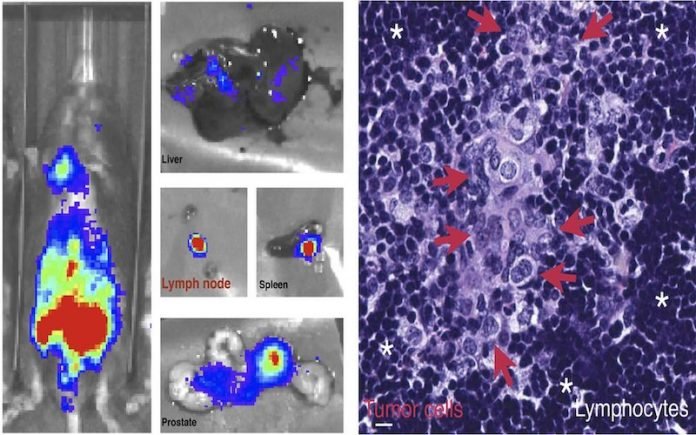
In a new study, researchers have discovered a new way to prevent metastatic prostate cancer.
They found that treating human prostate cancer cells with a drug that targets a protein PHLPP2 may prevent the cancer cells from spreading to other organs in the body.
The research was conducted by a team from Weill Cornell Medicine and their collaborators.
In the study, the team focused on the levels of MYC, which is an oncogenic protein that can cause many types of cancer that cannot be treated by conventional drugs.
It is estimated that 450,000 people in the U.S. are diagnosed each year with cancer driven by MYC.
One type of cancer linked to elevated MYC levels in the body is metastatic prostate cancer.
This type of cancer can from the prostate to other organs in the body and dramatically decrease the survival rate.
In this study, the researchers found that the protein PHLPP2 is also elevated in metastatic prostate cancer cells.
They found that metastatic prostate cancer cells require PHLPP2 to survive and proliferate.
When the Phlpp2 gene was deleted in mice, the researchers found that they could prevent prostate cancer cells from metastasizing to other organs.
The team then tested the method on human prostate cancer cells.
They used a drug that inhibits PHLPP2 and found this lowered MYC levels and caused the cells to stop proliferating and die.
The team suggests that their findings may help develop a new method to prevent metastatic prostate cancer and other types of drug-resistant cancer.
One author of the study is Dawid G. Nowak, an assistant professor at Cornell.
The study is published in the Journal of Cell Biology.
Copyright © 2019 Knowridge Science Report. All rights reserved.



